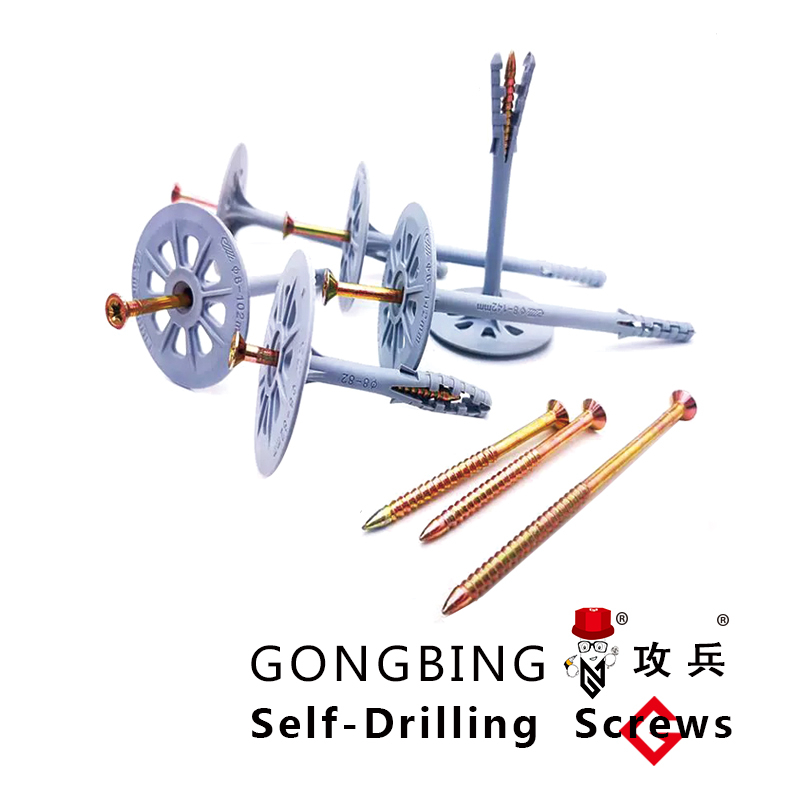Understanding the Importance of Machine Foundation Bolts in Structural Stability
Understanding Machine Foundation Bolts Importance, Types, and Installation
Machine foundation bolts play a crucial role in the stability and longevity of machinery installations. These specialized fasteners are designed to anchor machinery to the foundation, providing secure support that ensures operational efficiency and safety. Whether you’re setting up a new piece of equipment or maintaining existing machinery, understanding the importance of foundation bolts, their types, and proper installation techniques is essential.
Importance of Machine Foundation Bolts
The primary purpose of foundation bolts is to secure heavy machinery in place, preventing vibrations and movements that could result in misalignment, wear, or even catastrophic failures. Effective anchoring helps in reducing wear on components and machinery itself, which can significantly extend the operational lifespan of both the machinery and the foundation.
Moreover, in industries that involve high-speed or heavy loads, such as manufacturing, construction, and mining, the stakes are particularly high. Poorly secured machines can cause safety hazards, leading to workplace accidents and costly downtime. Therefore, using high-quality foundation bolts for installation is not just a matter of convenience; it's a critical safety concern.
Types of Foundation Bolts
Foundation bolts come in various shapes and sizes, each designed for specific applications. The most common types include
1. L-Bolts Shaped like an L, these bolts are utilized for anchoring machinery to concrete foundations. They provide excellent resistance against shear forces, making them ideal for many industrial applications.
2. J-Bolts These have a hook shape and are often used in situations where they need to be embedded in concrete. J-bolts can hold equipment tightly and are particularly effective in environments subject to heavy vibrations.
3. Straight Bolts These are standard bolts that require a nut on the opposite side for secure fastening. They are versatile and can be used in various installations.
4. Anchor Bolts These are specifically designed to attach items or structures to concrete. They come in several configurations, which makes them suitable for different loads and settings.
5. Study Bolts A variant that is typically used in situations requiring high tensile strength, often seen in critical machinery setups.
machine foundation bolt

Each type of bolt has its unique advantages and applications, so it's important to choose the right one for the job to ensure reliability and safety.
Installation Process
Installing machine foundation bolts requires careful planning and execution to ensure the proper alignment and anchorage. Here’s a general overview of the installation process
1. Planning and Design Before installation, it’s crucial to perform a load analysis and understand the vibrations and forces the machinery will exert. The size, length, and type of bolts should be determined based on the machinery specifications and the foundation design.
2. Preparing the Foundation The concrete foundation must be properly prepared. This includes ensuring that it is level, free of debris, and capable of supporting the load without excessive settling.
3. Positioning the Bolts Foundation bolts must be installed in the correct positions and orientations according to the design. They may be set in place using templates to maintain accuracy during the concrete pouring or embedded directly during the setup of machinery.
4. Concrete Curing If the bolts are cast into concrete, adequate time must be given for the concrete to cure to its full strength before machinery is installed.
5. Securing the Machinery Once the concrete is cured, the machinery can be aligned and secured to the foundation bolts. Proper torque specifications must be followed to prevent loosening due to vibration.
6. Regular Inspection After installation, regular inspections should be conducted to monitor the condition of the bolts and the machinery’s alignment, ensuring long-term operational safety.
Conclusion
Machine foundation bolts are a fundamental component in machinery installation that are often overlooked. Their correct selection, installation, and maintenance are critical for ensuring the stability, safety, and efficiency of industrial operations. By understanding the various types of bolts available and following proper installation procedures, businesses can minimize risks and enhance the performance of their machinery, ultimately contributing to greater productivity and safety in the workplace.
-
Weatherproof Plastic Expansion Anchors for OutdoorNewsJun.06,2025
-
Sustainability in the Supply Chain: Eco-Friendly TEK Screws ProductionNewsJun.06,2025
-
Load-Bearing Capacity of External Insulation FixingsNewsJun.06,2025
-
Double Head Bolts: Enhancing Efficiency in Industrial MachineryNewsJun.06,2025
-
Corrosion Resistance in Chipboard Screws: Coatings for Wholesale DurabilityNewsJun.06,2025
-
Butterfly Toggle Bolts : Enhancing Structural ResilienceNewsJun.06,2025
